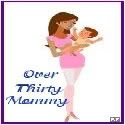Oral Care for Kids
Part I: Babies and Toddlers
Lori Herbert, RDH, BS
Becoming a new parent is exciting and scary, taking care of a babies teeth won't be the first thing you think about, especially since they don't have any when they are born. Those baby teeth started developing before birth and adult teeth are already forming. That is why it is so important to start taking proper care early.
What Parents Need to Know
- Cavities are caused by a contagious bacteria. Babies aren't born with it, they usually catch it from their parents. Get a check up and have any decay taken care of as soon as possible.
- Adult teeth are developing when kids are very small so excess fluoride during the early years can cause unsightly fluorosis on adult teeth. This is usually cased by kids eating toothpaste. Use a non fluoride toothpaste for your child until they are 2 and keep your toothpaste out of their reach.
- Decay is caused when bacteria eats sugar and causes acid. Sugar is found in juice, formula and breast milk. Letting a child fall asleep with a bottle or at the breast can cause what is often called baby bottle tooth decay. This is very painful and easily avoided. Never put your baby to sleep with a bottle or let them fall asleep breast feeding.
- Baby teeth are important, they hold the space for adult teeth. If a baby tooth gets a cavity don't just let it be. If the tooth is not repaired it can cause the child pain and the decay can even spread to the adult tooth that will come in later. Also some of these baby teeth will be there until your child is 12 or 13. Don't let them suffer with a cavity or a missing tooth for that ong.
The First Year
Babies generally are born without teeth, but oral care should start right from the beginning. Wiping out a babies mouth with the corner of a washcloth after meals is a good way for the baby to get used to a cleaning regimen. You can also purchase finger tip brushes to wipe out the babies mouth. These are usually made of silicone and are great if your baby has thrush, since you can boil them to kill the fungus.
Baby's first teeth will come in between 4-6 months. Once there are teeth you need to start brushing them. At this age it is important to use a toothpaste that does not contain fluoride because the baby will not be able to spit it out. You should stick with non fluoride toothpaste until the child is two years old. It is recommended that a child sees a dentist when the first teeth come in but in reality most offices don't accept child patients until they are around three years old. Don't worry though, because your pediatrician will be keeping an eye on your babies teeth. If the pediatrician sees anything of concern they will refer you to dentist. Some pediatricians even do fluoride treatments on their young patients.
Brushing a baby's teeth can be difficult. Even at such a young age they are independent and want to hold the brush themselves. The easiest way to work around this is to have two brushes. One for baby and one for you. Let baby chew their brush and you sneak in and get the real brushing done. This trick works for a long time. Even when your baby learns to hold the brush well help is needed.
The Toddler Years
By the end of the first year your baby has a much better grasp of independence making toothbrushing much harder. Continue the two brush method, but you may want to switch to an electric toothbrush. This will make the brushing much more efficient and fun for the child. Toothpaste comes in a variety of fun flavors for kids this age bu make sure you are sticking with the fluoride free types. If your child still uses a bottle now is the time to stop. Switch them over to a sippy cup, but use it only as a transition, they should be off this too before their second birthday. Constant sipping on juice or milk all day can lead to cavities and you don't want your childs first trip to the dentist to be for fillings.
Prevention of decay is important even for young children. If your child has been sleeping with a bottle or is taking medications can be at a heightened risk for decay. Fluoride is not the recommended treatment for children so young because it is easy to be overexposed. Instead you can try a product called MI Paste. This company makes a product with fluoride as well, but the fluoride free is best for young children. MI Paste is a cream that is applied to the teeth at home to strengthen and repair the teeth. It can reverse early stages of cavities and it tastes good too. If your child drinks a lot of juice or is glued to his bottle or sippy cup this would be an ideal dental product.
Most importantly though is to speak up if you have a concern about your childs oral health. Problems in the mouth tend to get worse with time. Ask your pediatrician if you have a concern and if you don't get an answer call a dentist. Those early teeth still have to last a while and parents are responsible to get kids on the right track for a lifetime of oral health.

















1 comments:
HI,
My dentist recommended a rice grain sized dab of flouride toothpaste on the toothbrush at each brushing - morning and evening. Any chance of developing spots on the teeth from this?
Post a Comment